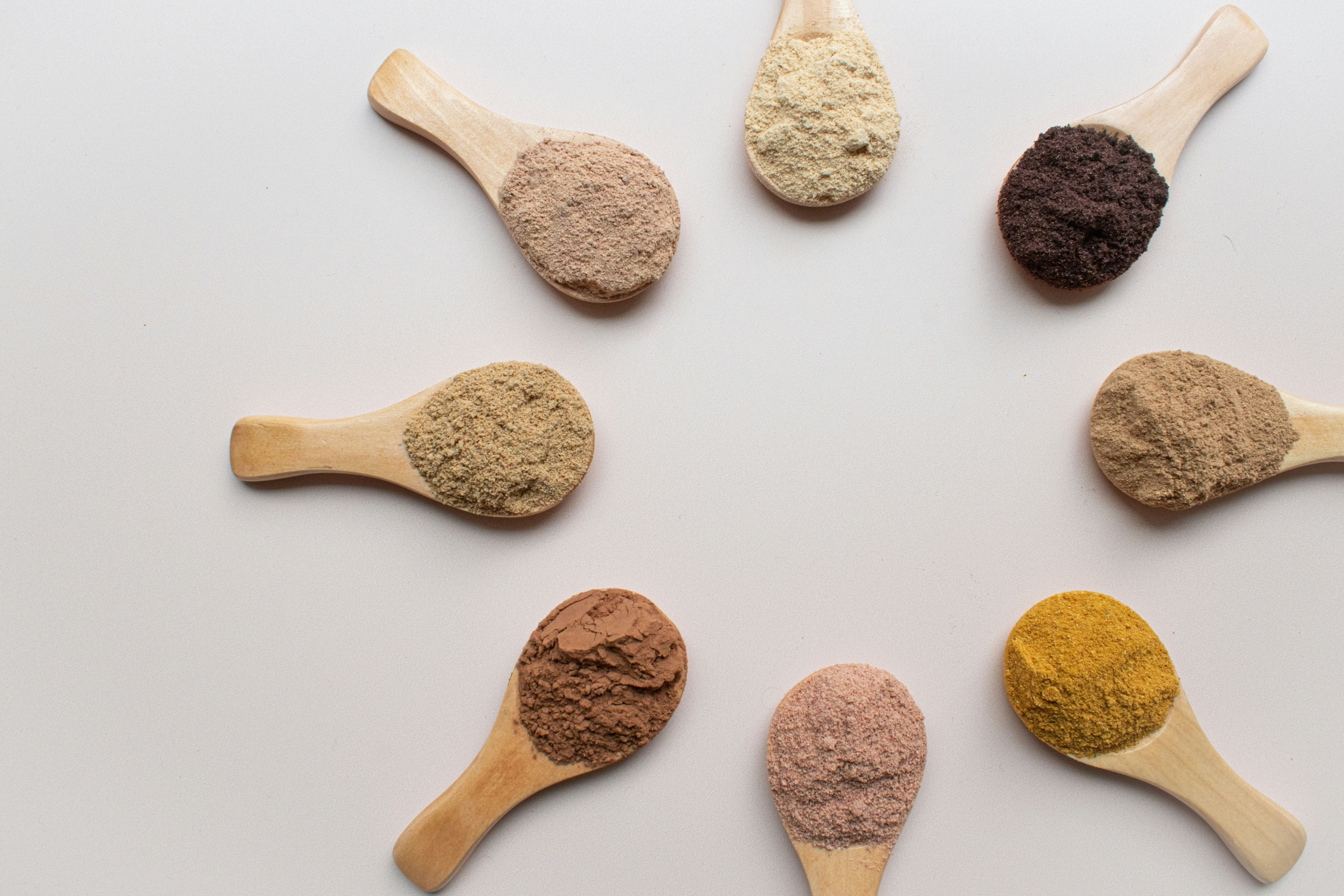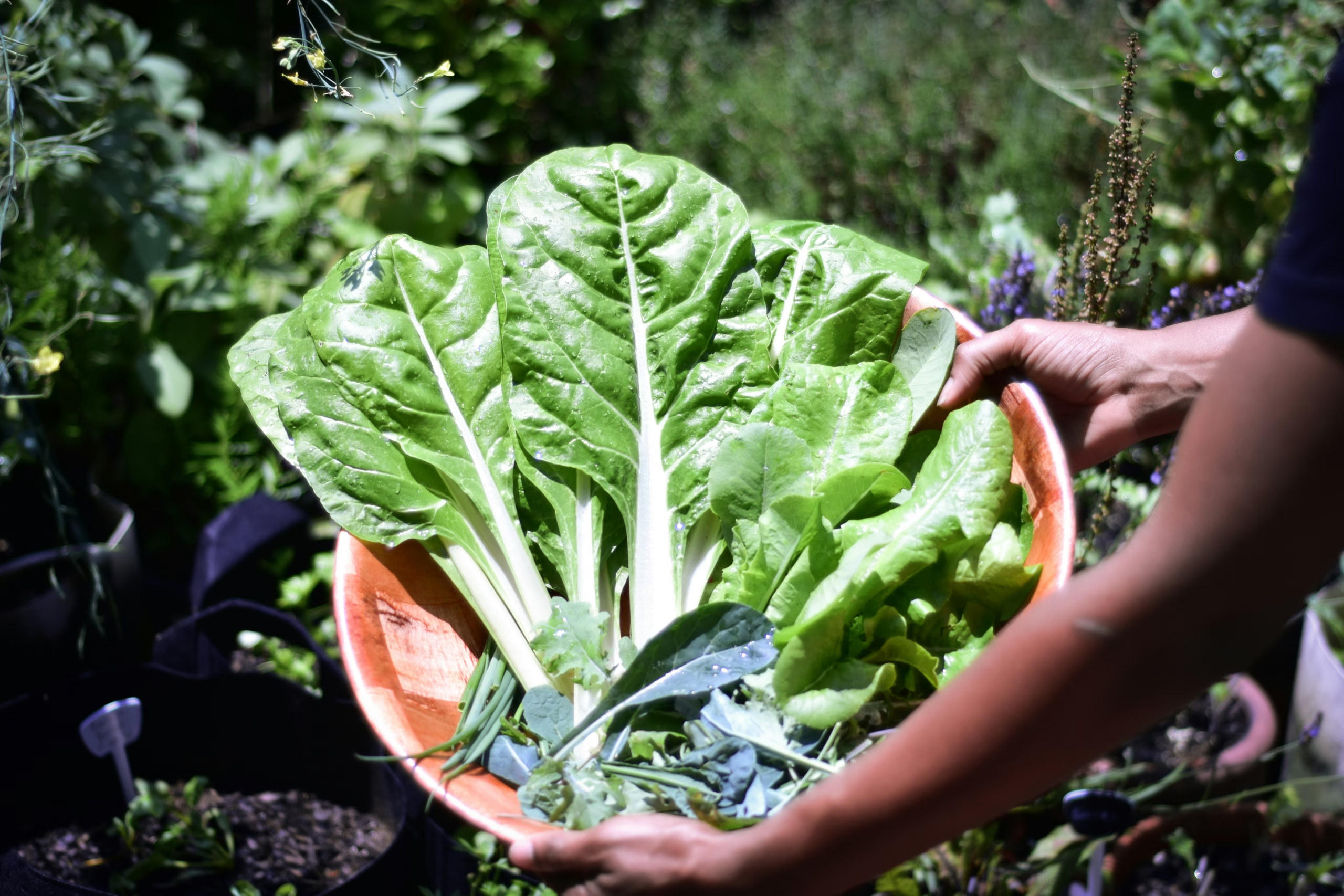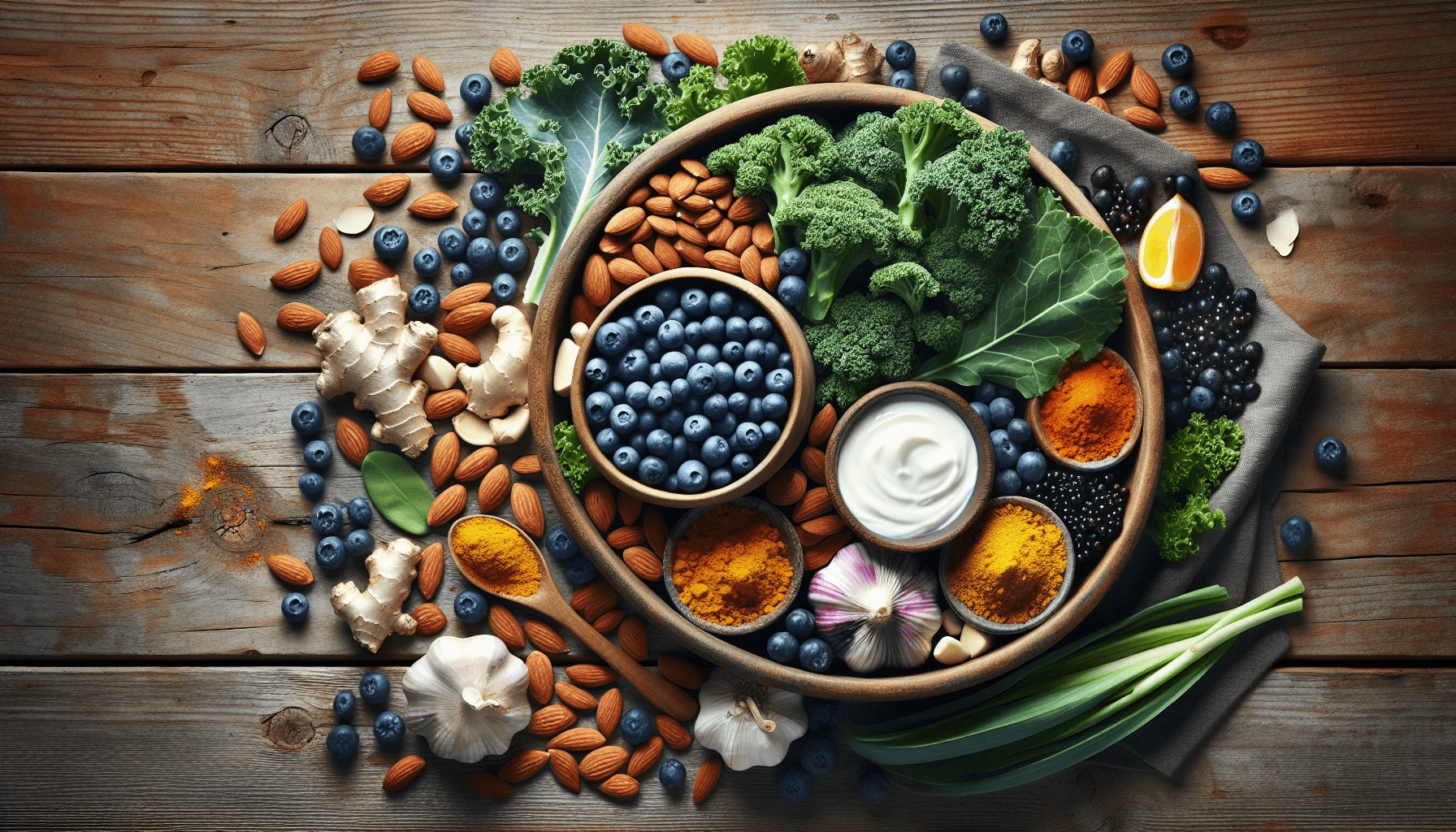7 Superfoods That Boost Immunity: Could your diet use a little boost to help keep your immune system in top shape? The answer might be closer than you think. Much like adding a pinch of salt to bring out the flavors in a dish, incorporating certain superfoods into your daily routine can enhance your body’s natural defenses. In our fast-paced world, where every cough or sneeze can make us feel on edge, it’s more important than ever to explore simple and effective ways to fortify our immune system. Let’s chat about seven powerhouse superfoods that can serve as your secret weapons, bolstering your health defense with every bite.

Table of Contents
What Are Superfoods?
Superfoods aren’t the mythical unicorns of the food world, though they sometimes feel like it. There’s no magical spell involved, just nutrient-rich ingredients that naturally pack a punch—full of vitamins, minerals, antioxidants, and other healthful compounds. By adding these foods to your diet, you’re giving your body the tools it needs to fight off infections and function at its best. It’s like you’ve added a team of microscopic superheroes ready to battle invaders and keep you feeling phenomenal.
1. Berries: Antioxidant Powerhouses
Why Berries?
Imagine the vibrant colors of a berry bush on a summer day. Those colors aren’t just for show—they’re indicators of loads of antioxidants. Antioxidants are essential because they help counteract free radicals in your body, reducing inflammation and promoting healthy cell function. With varieties like blueberries, strawberries, and raspberries, you have options plenty.
How to Use Berries
- Smoothies: Toss a handful into your breakfast blend for sweetness and nutrients.
- Yogurt Topping: Sprinkle them over a bowl of yogurt for an antioxidant boost.
- Salads: Add a splash of color and flavor to green salads with mixed berries.
Key Nutrients in Berries
| Berry Type | Key Nutrient | Benefits |
|---|---|---|
| Blueberries | Anthocyanins | Brain health, reducing heart disease risk |
| Strawberries | Vitamin C | Immune support, skin health |
| Raspberries | Fiber | Digestive health, blood sugar control |

2. Garlic: The Pungent Protector
Why Garlic?
Garlic might not be your first choice for fresh breath, but its benefits are well worth the trade-off. Allicin, the active ingredient in garlic, is known for its ability to boost the disease-fighting response of white blood cells. In essence, garlic is there to protect you like an invisible shield.
How to Use Garlic
- Cooking: Sauté garlic with vegetables or meats to infuse a rich, savory flavor.
- Dressings: Mix minced garlic into salad dressings for an extra kick.
- Soups: Add crushed garlic to your favorite broth for enhanced immune support.
Benefits of Garlic
- Anti-inflammatory properties ease discomfort and promote heart health.
- Antibacterial effects help fend off infections.
- Rich in antioxidants which support overall health.
3. Ginger: Spicy Defender
Why Ginger?
Ginger doesn’t just spice up your culinary creations; it also carries a zingy punch that can soothe your body. With anti-inflammatory and antioxidant properties, ginger is fantastic at supporting your immune system and improving digestion.
How to Use Ginger
- Tea: Brew fresh ginger slices for a warming, comforting tea.
- Stir-fries: Grate ginger into your stir-fry for spicy, aromatic dishes.
- Desserts: Use ginger in cookies or cakes for a delightful spice.
Benefits of Ginger
- Relieves nausea, a common side effect of various illnesses.
- Reduces inflammation, helping to alleviate chronic or acute pain.
- Supports healthy digestion, allowing your body to process nutrients efficiently.

4. Spinach: The Leafy Green Powerhouse
Why Spinach?
Spinach might conjure images of animated sailors with bulging muscles, and there’s good reason for its strength-boosting reputation. Loaded with vitamin C, beta carotene, and numerous antioxidants, spinach aids in immune function and maintains healthy skin.
How to Use Spinach
- Salads: Use spinach as a base for salads instead of lettuce for added nutrients.
- Smoothies: Blend a handful with fruit for a sneaky dose of greens.
- Pasta: Wilt spinach into sauces just before serving for color and perks.
Key Nutrients in Spinach
| Nutrient | Benefits |
|---|---|
| Vitamin C | Promotes skin and immune health |
| Beta carotene | Converts to vitamin A for eye health |
| Magnesium | Supports muscle and nerve function |
5. Fermented Foods: Gut Health Guardians
Why Fermented Foods?
Fermented foods might sound like an acquired taste, but their benefits are undeniably compelling. By introducing beneficial probiotics to your gut, these foods support a balanced microbiome, which is crucial for a robust immune response.
Types of Fermented Foods
- Yogurt: Rich in probiotics that maintain gut flora balance.
- Kimchi: A spicy Korean side dish packed with probiotics and vitamins.
- Sauerkraut: Fermented cabbage that’s excellent for digestive health.
Benefits of Fermented Foods
- Enhance nutrient absorption to ensure you’re getting the most from your food.
- Boost immune function by supporting gut health.
- Improve digestion and regularity through probiotics.

6. Turmeric: The Golden Healer
Why Turmeric?
Turmeric, with its rich golden hue, does more than just color your curries. Curcumin, the main compound in turmeric, is celebrated for its anti-inflammatory and antioxidant properties, making it a favorite in holistic health circles.
How to Use Turmeric
- Soups and Stews: Add a pinch to broths for earthy warmth.
- Golden Milk: Mix turmeric with milk and honey for a soothing drink.
- Curries: Incorporate turmeric into spice mixes for depth of flavor.
Benefits of Turmeric
- Reduces chronic inflammation, contributing to overall health improvement.
- Boosts brain-derived neurotrophic factor, which may improve brain function.
- May lower the risk of heart disease through its anti-inflammatory effects.
7. Green Tea: The Zen Elixir
Why Green Tea?
No conversation about superfoods would be complete without a nod to green tea. This ancient beverage is revered for its high concentration of antioxidants known as catechins, which are vital for immune defense and overall well-being.
How to Use Green Tea
- Hot Brew: Steep for 2-3 minutes to preserve catechins.
- Iced Tea: Brew double strength and serve over ice for a refreshing drink.
- Cooking: Use as a base for broths or in rice cooking for a subtle infusion.
Benefits of Green Tea
- Rich in antioxidants, known for reducing the risk of chronic diseases.
- Improves brain function, thanks to modest caffeine and L-theanine content.
- **Supports weight loss† and metabolic health through various bioactive compounds.

Pulling It All Together
Balancing these superfoods within your diet can create a dynamic duo effect for your immune health, like a well-conducted symphony—each player essential for the bigger picture. You don’t have to do it perfectly; start with one or two and incorporate more over time. You might find that a splash of turmeric in your evening teas or a handful of spinach in your morning smoothie fits smoothly into your routine, like puzzle pieces designed just for you. With each nourishing bite, you’re not just feeding your hunger, but fueling your body’s natural defenses and cultivating a lifestyle that prioritizes vitality. Who knows? You might even discover a new favorite food along the way.
In this ever-evolving world, where health consciousness is on the rise, these superfoods can serve as your trusted allies in maintaining a resilient and robust immune system. Engage with them charismatically, and in no time, they might become the secret to your health and contentment. Throughout this journey, remember: you are the star quarterback of your own health team, and these superfoods are your MVPs. So, ready to lace up and step onto the field of health and wellness with these nutritional powerhouses?
7 Exceptional Superfoods to Eat for a Strong, Healthy Immune System

